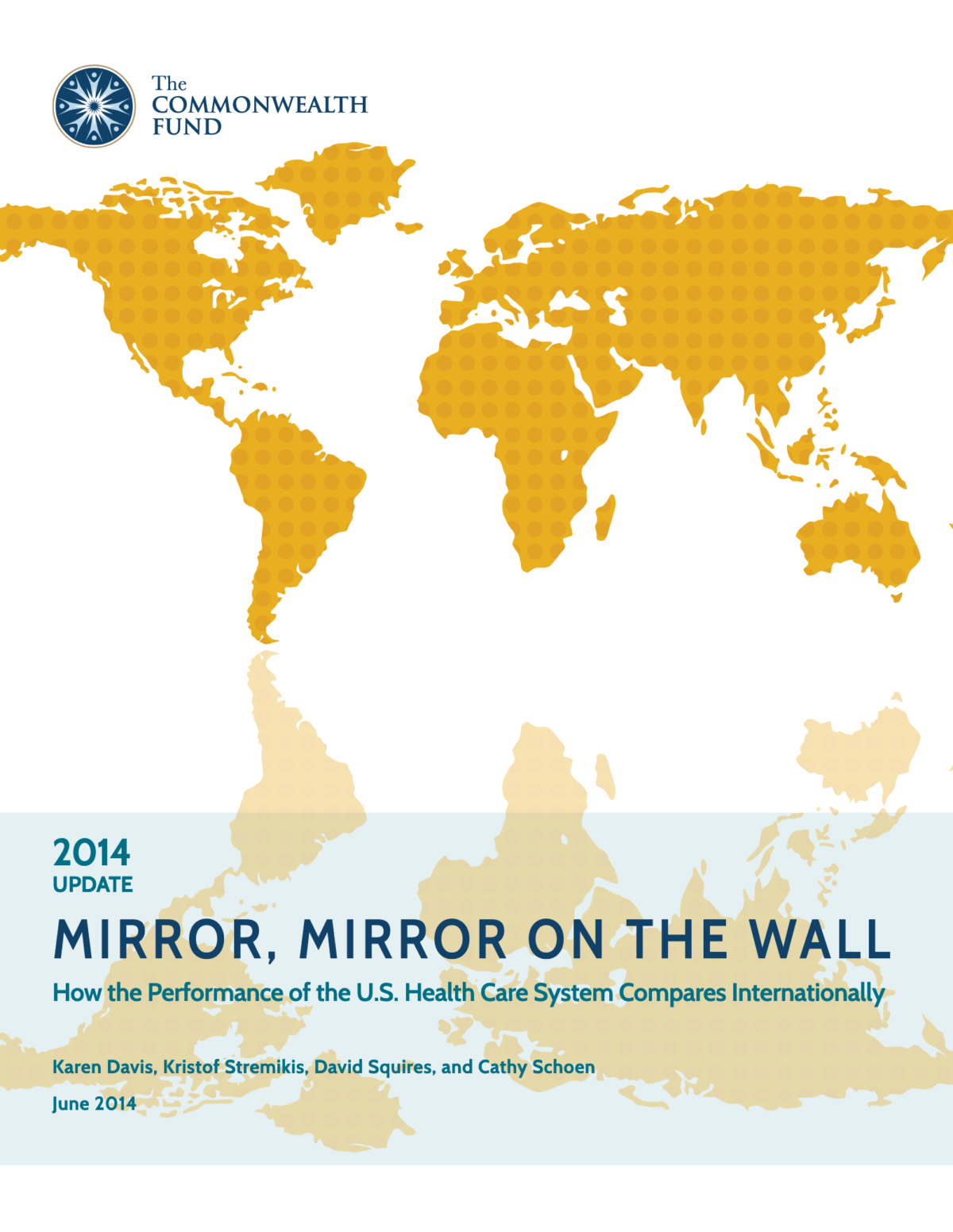New report exposes failures of for-profit health care system, Southern Maine Workers Center calls for publicly and equitably funded universal health care

A new report from the Commonwealth Fund reminds us that the U.S. health care system is broken: despite spending more on health care than any other nation on earth, the U.S. ranks dead last in a study of health outcomes in 11 industrialized countries. Drew Joy, a leader with the Southern Maine Workers’ Center, cuts to the chase: “The only solution is to move away from the private insurance model that keeps costs up and real care down. What we need is a publicly and equitably funded universal health care system, and in order to get it we must organize for our human rights.”
American ‘Healthcare’ Exceptionalism: Highest Costs, Worst Care
New report exposes failures of for-profit system and prompts renewed calls for universal care
A new report reveals that the the U.S. health care system is the most expensive in the world yet delivers the worst care among 11 industrialized nations, in what critics charge is further proof that the private insurance model is broken.
“The only solution is to move away from the private insurance model that keeps costs up and real care down,” Drew Joy, member of the Southern Maine Workers Center, told Common Dreams. “What we need is a publicly and equitably funded universal health care system, and in order to get it we must organize for our human rights.”
Released on Monday by the Commonwealth Fund, the report examines Australia, Canada, France, Germany, the Netherlands, New Zealand, Norway, Sweden, Switzerland, the United Kingdom, and the United States, looking at patient and physician surveys as well as data from the Organization for Economic Co-operation and Development and the World Health Organization.
The U.S.’s dismal rating is not new. The country has come in dead last every year this survey has been produced—in 2004, 2006, 2007, and 2010—with lack of access to health care, failures in equitability, and inefficiencies cited as key reasons for its latest low-ranking. In the report, the U.S. scores last in “mortality amenable to medical care, infant mortality, and healthy life expectancy at age 60.”
Low-income people in the U.S., the report notes, are “much more likely than their counterparts in other countries to report not visiting a physician when sick; not getting a recommended test, treatment, or follow-up care; or not filling a prescription or skipping doses when needed because of costs.”
One of the key reasons for this is due to a U.S. private health insurance system that saddles people with high out-of-pocket expenses and “unstable coverage” that is rarely portable and often based on employment status.
“In the U.S., if you lose your job you lose insurance. If your income changes you lose eligibility. People can quickly change from being insured to uninsured,” said David Squires, a co-author of the report, in an interview with Common Dreams. “There is also the issue of coverage that isn’t sufficient to cover the cost of care. We talk about the under-insured—people who have health insurance but it is not enough.”
Evidence of the insurance shortfall is buttressed by U.S. Census Bureau data, which found that as of 2012, 48 million people in the United States were without health insurance, and people of color were less likely to be insured than their white counterparts.
The report’s authors express hope that the Affordable Care Act, by expanding insurance coverage, will help lift health care outcomes in the United States.
Yet, critics charge that the ACA does not go far enough, leaving those who qualify in the clutches of the private insurance system responsible for the poor state of health care. Meanwhile, poor and working class people in the 25 states that have rejected Medicaid expansion are left out in the cold, as well as undocumented people, who are explicitly excluded from benefiting from state Medicaid expansions or new insurance marketplaces under the ACA.
“We need to be clear about the difference between health care and health insurance,” said Elizabeth Capone-Henriquez, member of the Southern Maine Workers Center, who is a parent of young children, and a Medicaid recipient. “People don’t deserve health care in relation to how much money they have. They deserve health care because they are human beings.”
